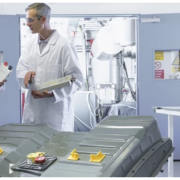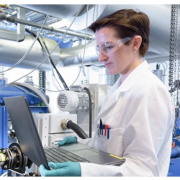Why do autonomous vehicles need to be tested?
Advanced driver-assistance systems (ADAS) are systems developed to automate or enhance vehicle systems for safety and better driving. ADAS features are designed to avoid collisions and accidents by offering technologies that alert the driver to potential problems, or to avoid collisions by implementing safeguards and taking over control of the vehicle. ADAS relies on inputs from multiple data sources, including automotive imaging, LiDAR, Radar, Image Processing, and in-car networking or connected car infotainment.
In-car networks provide more infotainment options for increased safety and connectivity. Autonomous vehicles use vehicle to vehicle communication and Vehicle to Infrastructure communication (V2X) to operate the vehicles safely on the road. So the V2X communication should work all the time and all possible scenarios. Testing and ensuring that the devices meet the standard specifications and requirements and time to market is the key for automobile manufacturers.
For further details please speak to our technical expert at VSK Test Solutions:
Email: sales@vskconsultants.com | Tel: +44(0)1296695548







